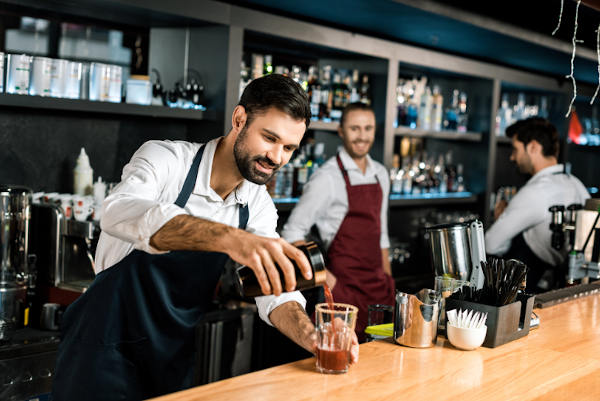Washington has a lively and dynamic bar scene, offering promising prospects for anyone dreaming of a career as a bartender. From the vibrant nightlife in Seattle to the eclectic bars in smaller towns, the bartending industry in Washington presents a wealth of opportunities irrespective of one’s career path. This article will delve into the many facets of bartending in Washington.
Being a bartender in Washington has its perks. Firstly, being part of a thriving bar scene is an advantage in itself. Cities like Seattle, Spokane, and Tacoma are brimming with nightlife activity, and a plethora of establishments – from cocktail lounges to casual beer pubs – offer a myriad of job openings for bartenders. Particularly, Seattle’s innovative cocktail scene, abundant in unique, local ingredients, allows bartenders to explore their creativity while honing their skills. Washington also flaunts a thriving craft beer and wine industry, opening further avenues in tasting rooms, breweries, or wine bars.
Secondly, the flexibility and work-life balance this job provides is a considerable pro. Bartending can be the perfect alternative for those uninterested in the standard 9-to-5 grind. With shifts ranging from day, evening, to late-night, bartenders can comfortably juggle their job alongside other pursuits like education, personal projects, or even another part-time job.
The third advantage is the social interaction bartending offers. Given Washington’s multicultural milieu, each shift at work guarantees a unique experience. Whether it’s mingling with locals, tourists, regulars, or serving the occasional movie star, every day at work is an opportunity to network and build relationships with people from diverse backgrounds. For individuals who are natural storytellers and community builders, bartending can be a rewarding career.
Fourthly, the income potential in bartending is another encouraging factor. In Washington, tips supplement the wages of bartenders, and high-end bars or peak timings can prove to be very lucrative. Additionally, Washington provides a more generous minimum wage than the national average, thus offering better financial security.
Finally, the possibility for skill development is infinite. From mastering the art of mixology, understanding the growing craft beer scene, or getting acquainted with regional wines, the learning curve is steep and exciting. Many establishments emphasize skills training, thereby enabling bartenders to diversify their career paths in the food and beverage industry.
However, every job comes with its shortcomings, and bartending is no different. It is physically demanding; standing for long hours, reaching for bottles, cleaning up can be taxing on the body. Moreover, the late-night shifts and long weekends can affect sleep patterns and work-life balance.
The reliance on tips suggests income can be unpredictable, which can pose a problem when it comes to budgeting or saving. dealing with difficult customers may be part and parcel of bartending, but managing unhappy patrons requires patience, agility, and excellent communication.
At times, working late into the night, particularly on weekends and holidays, can be isolating, particularly when the rest of society operates on a completely different timetable. Lastly, bartending comes with restricted career expansion unless one move into management or decides to open their own bar.
To summarize, bartending in Washington is a mixed bag of challenges and opportunities. It offers a thriving work environment, flexible timetable, and prospects for great income. Nonetheless, the physical demands, late hours, and unstable income are drawbacks to consider seriously. Whether you see bartending as a stepping stone or a long-term career choice, understanding its pros and cons can guide you in making the best decision for your lifestyle and aspirations.




